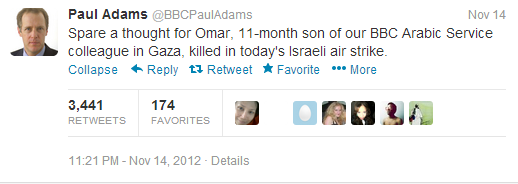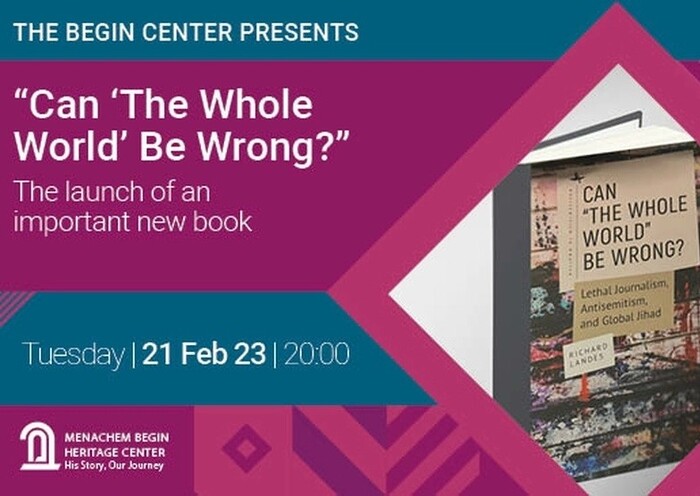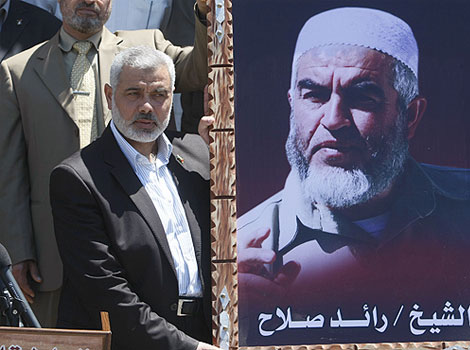Though Richard Landes is a Princeton-educated medievalist, he’s best known – at least amongst us non-academics – for his trenchant criticism of international media coverage of Israel, Jews and Islamist terrorism.
He coined the term “Pallywood” – a take on Bollywood – which refers media manipulation and fraud by Palestinians employed to win the public relations war with Israel. He was among the first serious thinkers to critically examine the Al-Durrah Affair and to expose the gaping holes in the media’s narrative of that incident which accepted at face value Palestinian claims that Israel intentionally murdered an innocent child.
His new book, “Can The Whole World Be Wrong?: Lethal Journalism, Antisemitism and Global Jihad”, is inspired by the following quotes:
Is it possible that everybody can be wrong, and the Jews be right? —Ahad Ha’am, 1892 (on the gentile response to Jews denying the blood libel)
I don’t think the whole world, including the friends of the Israeli people and government, can be wrong. —Kofi Anan, UN Secretary General, 2002 (in response to IDF operation in Jenin)
Landes’s focus on the media in chapter nine of his book – the focus of our review – describes the growing phenomenon, since the aughts, of advocacy journalism which replaced empirically-based reporting as the dominant media template in covering the Israeli-Palestinian conflict.
This manifests itself not only in the portrayal of Israel as the Goliath to the Palestinian David – which evokes, Landes argues, in many Europeans, burdened by their own history, a moral Schadenfreude – and by holding Israelis to a higher moral standard than Palestinians and often erasing Palestinian agency altogether.
One could say that Landes was early to understand what would become known as Wokeism: an illiberal ideology which insists that achieving global social justice requires that we classify people purely – and often arbitrarily – as victims or victimisers, with only the latter being seen as moral actors. Thus, we see Palestinian extremism, violence and antisemitism almost uniformly downplayed, obfuscated and erased from the media’s first draft of history.
Arguably one of the best examples – in a very crowded field – cited by Landes of the degree to which mainstream journalists will go to cover for Palestinian racism against Jews is an incident exposed by CAMERA in 2001. The New York Times employed a ‘he said, she said’ formula on the ‘question’ of Palestinian incitement which included a grossly misleading quote from a Palestinian sermon broadcast on Voice of Palestine Radio.
The NY Times reported, as one example of Israelis ‘claiming’ Palestinian incitement, Sheik Ahmad Abu Halabaya saying that:
“Whether Likud or Labor, Jews are Jews”.
However, the actual quote by Halabaya included this, erased by the NY Times, which evokes Nazi-level murderous antisemitism:
“Whether Labor or Likud, the Jews are Jews. They do not have any moderates or any advocates for peace. They are all liars. They must be butchered and must be killed…”.
In stark contrast to the whitewashing of Palestinian malevolence, Landes often uses the term “lethal journalism”, coined by Yossi Kuperwasser, to describe narratives of putative Israeli oppression of Palestinians depicted as so sadistic that it arouses in both Palestinians and Westerners a sense of outrage and a desire for revenge that often results in hatred of Jews qua Jews. This dynamic is born out by dangerous surges in antisemitism in Western cities during conflicts between Israel and Hamas.
Examples of media malfeasance – aka, lethal journalism – cited by Landes would be familiar to our regular readers. They include the tragic death, during the 2012 war between Israel and Hamas, of Omar Masharawi, the baby of BBC’s Jihad Masharawi, which was inaccurately attributed to an Israeli airstrike, but was later determined to be caused by a Hamas rocket.

A Telegraph article on the 2014 war between Israel and Hamas which included a headline that was literally the opposite of the truth, telling readers, after Israel agreed to a total ceasefire, that its military was going “to drop more bombs”.

Finally, Landes persuasively argues that the media’s myopic and agenda-driven coverage of the region doesn’t merely negatively impact Israelis and Jews.
What he refers to as the outlets’ “own-goal journalism” describes the danger to the West posed by their narrow Palestinian carve-out within widely accepted norms viewing terrorism as intrnisically abhorrent. Their implicit sanction for violence in service of the Palestinian cause erodes the democratic world’s moral case against Islamist extremism more broadly, by blurring – within the public consciousness – the distinction between liberal states using military force to protect their citizens from harm and illiberal state and non-state actors using violence for purely malevolent ends.
Landes’ book makes clear that, per the UN’s Anan, ‘the whole world’ can indeed by wrong about the Jews, and the risks – to both Jews and the West – if we don’t win this cognitive war are incalculable.





One problem is that the EDI (Equality, Diversity, Inclusivity) culture has enabled arabist personnel easily to infiltrate UK politics and media – who then use their in-built antisemitic influence to bias government policies and public perception against Israel..